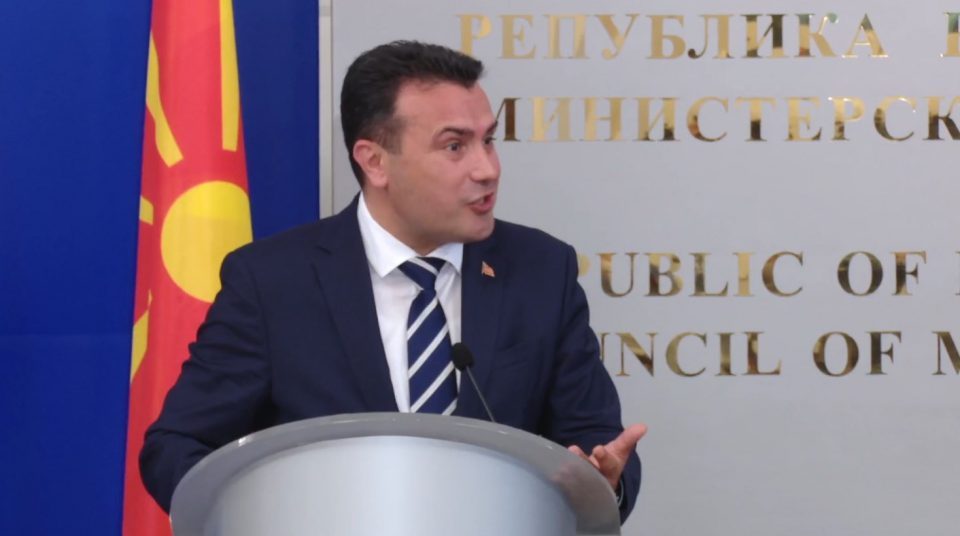After the disastrous EU – Balkans summit, where Bulgaria issued a long list of strict demands aimed at Macedonia, Zoran Zaev today quickly agreed to one of them – that the Macedonian Constitution is amended and the Bulgarians are listed among the other constituent nations of Macedonia. This request is expected to have hard time passing in the Parliament, as Zaev has only a very thin majority and VMRO-DPMNE announced it will not support it – unless Bulgaria also adds the Macedonian minority in its own Constitution.
We have no problem to implement this demand in the period ahead of us, as we proceed to full EU membership, Zaev said.
He also announced that he accepts a number of other Bulgarian demands – although it’s unclear whether Bulgaria will be satisfied with the form of acceptance. For example, Bulgaria wants a process of lustration in Macedonia that will reveal the extent of Communist era abuses against Macedonian citizens – with a particular focus on those persecuted for their Bulgarian identity. Zaev today said that the Macedonian Parliament already adopted a resolution to condemn Communism in 2006 and that this covers any abuses of the rights of Bulgarians. As for the issues raised by Bulgaria about the imposed name “North Macedonia” and the claim it could be interpreted to lay on the Bulgarian region of Pirin Macedonia, Zaev says that he considers the name to be non-threatening.
Zaev pledged that his Government will react “timely and promptly” in instances of hate speech against Bulgaria. Given the level of tensions between the two nations on social media, this could mean more police action against individual citizens for comments they make on Facebook and Twitter – often driven by anger over the Bulgarian veto.
One area where Zaev outright refused the Bulgarian demands is the request from President Rumen Radev that Macedonia rewrites its national history in line with the Bulgarian reading of history. This, Radev said, is part of the process of ending the “Macedonian-ness” in Macedonia, as Bulgaria considers that the Macedonians were historically part of the Bulgarian nation and wants the history books to reflect that.
There is absolutely no demand or need to discuss changing the history or anything like that, Zaev said, adding that Macedonia and Bulgaria agreed to jointly honor a number of historic figures, as shared heroes and that the rest of the historic issues should be resolved through the joint committee of historians.
Despite the obvious hardening of the Bulgarian positions, Zaev insisted that it is possible to find a solution that would allow Macedonia to open its accession talks by the end of the year.





Comments are closed for this post.